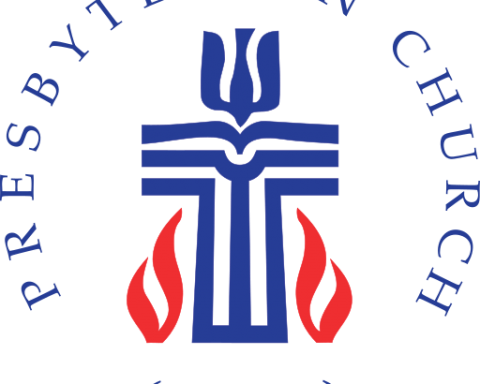 The Way Forward Committee of the General Assembly considers reports of the Way Forward Commission, All Agency Review Committee, and Vision 2020 Team, as well as business related to the national structure and funding of the PC(USA).
The Way Forward Committee of the General Assembly considers reports of the Way Forward Commission, All Agency Review Committee, and Vision 2020 Team, as well as business related to the national structure and funding of the PC(USA).
Below are descriptions of each piece of business, divided into two categories. Each item number links to the full text of the resolution on pc-biz.org, along with all official comments that have been submitted.
(Note: the membership of the Way Forward Committee and the membership of the Way Forward Commission do not overlap. The Commission was created by the 222nd General Assembly, “To study and identify a vision for the structure and function of the General Assembly agencies of the PC(USA).”
Acronyms used:
A Corp: “The Presbyterian Church (U.S.A.), a corporation;” (the legal form of the national mission body required for holding property and managing assets)
AARC-All Agency Review Committee
ACSWP-Advisory Committee on Social Witness Policy
ACREC-Advocacy Committee for Racial Ethnic Concerns
ACWC-Advocacy Committee for Women’s Concerns
COGA-Committee on the Office of the General Assembly
GACOR-General Assembly Committee on Representation
PC(USA)-Presbyterian Church (U.S.A.)
PMAB-Presbyterian Mission Agency Board
WFC-Way Forward Commission
Envisioning Different Ways Forward
In 2018, the WFC (04-03), AARC (04-04), and PMAB (04-06, 04-08, 04-09) have each made recommendations that seriously alter aspects of the structure of the PC(USA) at the national level. The tension between these proposals may take up a fair bit of the oxygen in the room, but the three have also done a lot of communicating with each other in this process. Thorough comments by ACSWP, ACREC, ACWC, COGA, and GACOR attempt to help commissioners discern how to approach the different proposals.
In addition, the Presbytery of Newton has recommended a review of the Per Capita System—with advisory and advocacy groups generally supporting the resolution, while commenting that the system has both strengths and weaknesses. An alternate approach to revisiting Per Capita is included within the AARC report (04-04)
04-01: Creating a Team to Review the Per Capita System—Presbytery of Newton.
This recommendation creates a 6-10 member team to review the per capita system, which it claims is “not flexible nor adaptive.” Comments from ACSWP, ACREC, ACWC, and COGA generally support the recommendation, with ACSWP recommending alternate language that does not specify team size. The General Assembly Committee on Representation (GACOR) recommends a larger team. (An alternative approach, included in 04-04, would be to have the six PC(USA) agencies conduct the review.)
04-03: Report—Way Forward Commission.
This report’s proposed changes touch on many aspects of church structure, amending the Organization for Mission and enhancing the role of the Stated Clerk, among other changes, and most notably distancing PMAB from A Corp (including the resignation of all PMAB members from the A Corp Board of Directors) under the theory that this will help PMAB focus more on mission. The new A Corp Board would effectively be a separate body dedicated to managing funds and services shared by the several agencies in Louisville, and composed of representatives of those other boards. For the purpose of implementation, WFC recommends creating a “Moving Forward Commission” composed of 4 members of WFC, 4 members of AARC, and 4 members to be appointed from commissioners to the 223rd General Assembly.
• ACSWP offers a major rewrite of section 1 [a-h] regarding the structure of A Corp, writing that the WFC proposal unintentionally prescribes an “even more ‘corporate’ and less theological” approach. It would include users of shared services on the A Corp board in proportion to their dependence on A Corp funds, but believes the Way Forward is offering unnecessary board-structural solutions to what are actually leadership and management problems. ACSWP concurs with several other WFC recommendations, but proposes line edits to include members of the PMA and OGA in any new commission. From “The Way Forward” to a Way Ahead: The Missing Prophetic Compromise addresses the four paragraphs of the ACSWP A&C which were initially omitted from its recommendations online.
• ACREC endorses the recommendation contingent on a list of proposed amendments concerning representation.
• ACWC shares some of ACSWP’s concern, adding that “the proposal, as it stands, misses the mark and separates money and mission, centralizing financial power and offers limited regard for the ecclesiastical mutual responsibility and accountability that is assured in Presbyterianism.”
• COGA writes that its concerns about the report have been “partially addressed,” with an emphasis on “A Corp. as a utility to serve those who are constituents of Shared Services, currently the Office of the General Assembly, the Presbyterian Mission Agency, the Presbyterian Investment and Loan Program, Inc., and Presbyterian Women, Inc.” COGA also “strongly urges disapproval of any action that would require the Office of the General Assembly to create a new or separate corporation,” i.e. item 04-06.
04-04: Report—All-Agency Review Committee
Among many other recommendations, this report suggests that the six PC(USA) agencies review the per capita system (instead of forming a team, as in 04-01). It allows representatives of any PC(USA) agency affected financially or missionally by an overture or commissioner’s resolution to speak immediately after the presenter.
In several ways, the report lines up with the WFC report (04-03): firstly, though the rationale reports thorough consideration of the idea, this report deliberately refrains from recommending a merger between PMA and OGA. It endorses the creation of a “Moving Forward Commission” as outlined in 04-03, and recommends “that the 223rd General Assembly (2018) delay the beginning of the next cycle of review of the agencies to allow the agencies to focus on implementation of these recommendations as well as the work already assigned them.”
AARC’s recommended model for future agency reviews de-emphasizes “self-studies” (the prior emphasis) and proposes teams gathered from other agencies, presumably appointed by the heads of those agencies. The criteria to be used would still reflect the particular work of the bodies under review.
04-05: Interim Report—2020 Vision Team
Unlike WFC, AARB, and the Governance Task Force of PMAB, the 2020 Vision Team does not seem to be on a path of structural reform. Instead, this report shares a draft of the new (2020) “guiding statement” for the church (following the acronym of “Prayerful-Courageous-United-Serving-Alive”) and expresses the team’s plan for its remaining work in implementing and branding the vision of the church.
04-06: Dividing the PC(USA) A Corporation into two corporations—PMAB.
This resolution, in response to the 04-03 WFC recommendation to restructure A Corp and separate it from the PMAB, includes a detailed “plan of division” for splitting A Corp into two corporations instead, one of which would focus on mission and remain within the purview of PMAB. In the rationale, PMAB states: “Power and authority should never be separated from action or mission, and actions are more important than intent. Therefore, the Presbyterian Mission Agency Board believes that it must offer the General Assembly the opportunity to consider a division of the corporate structure in order to ensure that the General Assembly’s mandates and directives for mission are honored and carried out.”
The PMAB proposal to split A Corp. is opposed by ACREC, COGA, and WFC (with the latter responding at length). ACSWP’s amendments to (04-03) are intended to assuage some of the PMAB concerns which led to the proposal of 04-06.
04-08: Amending the Organization for Mission—PMAB
This recommendation amends the text of the Organization for Mission. Many changes are shared between this recommendation and the Organization for Mission changes proposed by WFC in 04-03, but there are substantial differences as well, especially as pertain to section VII, “Presbyterian Church (U.S.A.), A Corporation”. This item and the next come from a Governance Task Force of the PMAB.
04-09: Revising PMAB Manual of Operations—PMAB
This recommendation from PMAB gradually reduces its size, “to ensure that it is more effective and efficient, focused on being the body of Christ in the world,” as well as addressing the board’s composition and the length of members’ service. It also restructures the PMAB Manual of Operations to improve its organization.
PMAB has until now consisted of 40 voting members, 15 corresponding members, 2 ecumenical advisors and 4 at-large committee members, totaling 51. The proposed change reduces this to a total of 19: 15 at-large members, one member each from ACSWP, ACREC, ACWC, and COGA, and an ex-officio member (the current moderator of the coordinating team of PW).
ACREC supports the recommendation. ACWC supports it as well, and includes an amendment to clarify that ACSWP, ACREC, ACWC, COGA, and PW will continue to have a seat on PMAB even if PMAB ceases to be the board of A Corp.
Working to Eliminate Systemic Bias
Two recommendations from the Advocacy Committee for Racial Ethnic Concerns (ACREC) focus on increasing access and transparency in hiring by/participation in the church.
04-02: Prioritizing Translation and Accessibility in the PC(USA)—ACREC
This recommendation directs all six PC(USA) agencies to create an “Office of Translation and Interpretation” and to deliberately hire and retain people from the ‘“Global South” Presbyterian communities and other historic Presbyterian “Communities of Color.”’
Comments from ACWC and GACOR are supportive of the recommendation.
04-07: Race Audits of the Six PC(USA) Agencies–ACREC
This recommendation follows up on the 22nd GA’s direction of each PC(USA) agency to “complete organizational reviews of their practices and policies as they impact people of color and racial diversity (known as a ‘race audit’), and to evaluate the potential impacts of future initiatives on people of color and racial diversity.” From the preliminary experience of agencies self-auditing, ACREC suggests that an external auditor will be more standard and effective in identifying systemic bias.
The resolution has a supporting comment from GACOR.
***
This outline was compiled by Henry Koenig Stone, who serves in Louisville, KY as current Managing Editor of Unbound and as Associate for Young Adult Social Witness (staff to ACSWP). Henry holds a B.A. in Economics (2015) from the University of Chicago and an MPP (2017) from UChicago’s Harris School of Public Policy. His past work has focused on policy analyses of healthcare pilot programs and public health systems.






Unbound Social